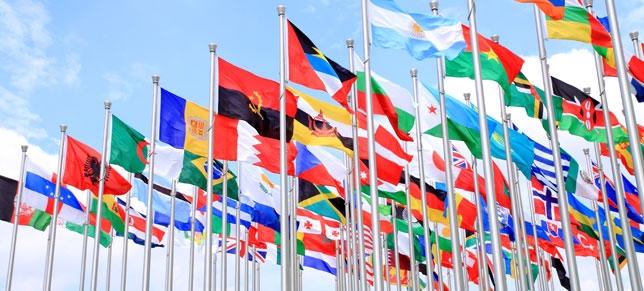International relations and diplomacy are two intertwined concepts that play a significant role in shaping our world.
International relations refers to the study of relationships between nations and other actors in the international system, such as international organizations and non-state actors.
Diplomacy, conversely, refers to the art of negotiation and communication between nations to promote peaceful relations and achieve mutual goals. In this essay, I will explore the importance of international relations and diplomacy in today’s world.
One of the primary roles of international relations and diplomacy is to promote peace and stability in the international system. Nations have always had different interests and goals, and this often leads to conflicts and tensions.

International relations and diplomacy provide a framework for nations to negotiate and communicate with one another, which helps to prevent conflicts from escalating and promotes peaceful resolution of disputes.
Moreover, international relations and diplomacy are critical in promoting economic development and cooperation among nations. In today’s globalized world, nations are increasingly interconnected, and the economic well-being of one nation is often tied to that of others.
International relations and diplomacy help to facilitate trade and investment among nations and promote economic growth and development.
Furthermore, international relations and diplomacy are essential for addressing global issues such as climate change, terrorism, and human rights violations.
Addressing complex challenges necessitates coordinated international efforts and cooperation. International relations and diplomacy offer a platform for nations to collaborate on these issues.
In addition, international relations and diplomacy are crucial for promoting cultural exchange and understanding among nations.
Diplomatic visits, cultural exchanges, and international events allow individuals from different nations to interact, fostering mutual understanding and respect by breaking down cultural barriers.
Moreover, international relations and diplomacy play a vital role in promoting democratic values and human rights around the world. Diplomatic efforts can be used to pressure authoritarian regimes to respect human rights and promote democratic values.
Organizations like the United Nations play a crucial role in promoting and protecting human rights through diplomatic efforts.
To conduct effective international, nations need skilled diplomats with knowledge of other nations’ culture, history, and politics.
Diplomats need strong communication, and negotiation skills, and the ability to navigate complex political and cultural environments.
To improve international, nations must engage in dialogue and negotiation despite significant differences in interests and goals.
Diplomacy requires a willingness to compromise and find common ground, even when it may be challenging.
In addition, effective international diplomacy requires the use of soft power. Soft power entails using cultural and ideological influence for foreign policy goals, rather than relying on military or economic coercion.
Soft power can include cultural diplomacy, education and exchange programs, and the promotion of democratic values and human rights.
Moreover, effective international and diplomacy require the use of international institutions and organizations. These entities offer a framework for nations to collaborate on global challenges and foster peace and stability.
The United Nations plays a crucial role in fostering global cooperation and tackling issues like climate change, poverty, and conflict.
Conclusion
International relations and diplomacy play a significant role in shaping our world. They advocate for peace, stability, economic development, cultural exchange, democratic values, human rights, and global issue resolution.
Nations need adept diplomats with a grasp of diverse cultures and politics, a readiness for dialogue and compromise, and the utilization of soft power, international institutions, and organizations to conduct diplomacy effectively. 바카라사이트